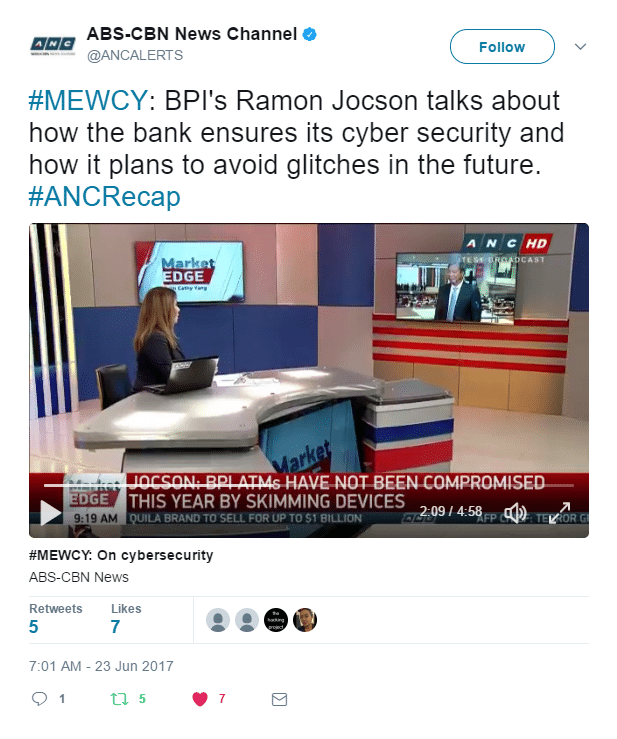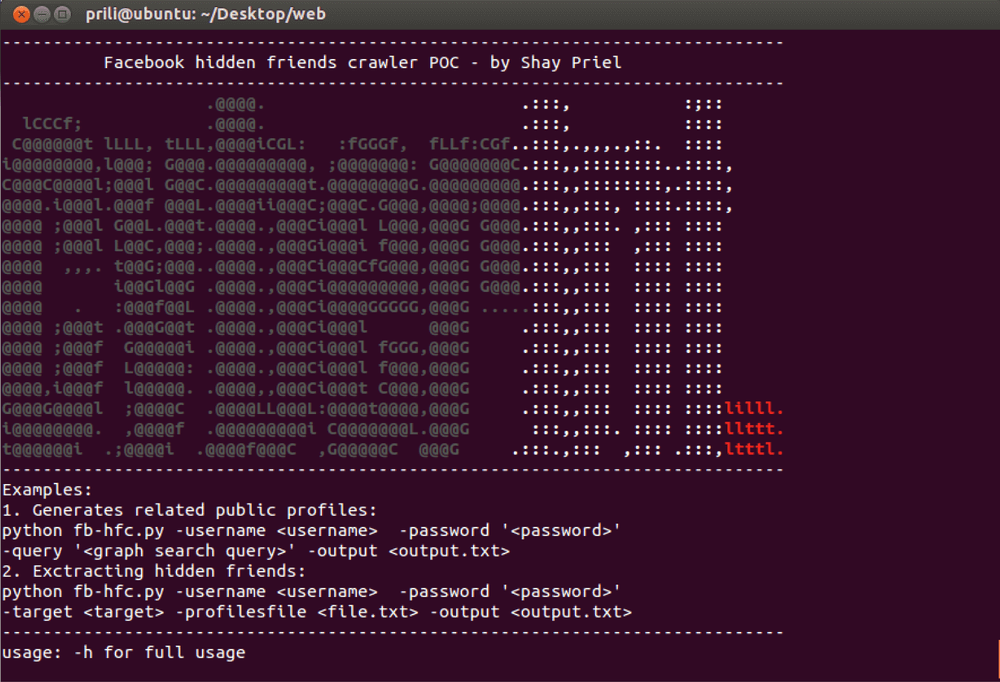


On June 21st in Manila, Philippines, The Bank of the Philippine Islands (BPI) was brought before a Senate panel due to BPI’s system glitch which caused misposts on client accounts. However, BPI’s Ramon Jocson assured the Senate that its system glitch was 100% not a case of hacking. As he stated, “Your honor, [we are] 100 % definite it is not a hack”. He was able to assure this statement due to the fact that his company has a cyber security operations system sensor that detects people trying to get into their systems. Jocson continued to explain that this is due to their partnership with vendors such as CyberInt, FireEye and IBM that help them monitor their system. BPI was also joined by BDO in the hearing, as both had issues being addressed, following a 26-hour system shutdown.
The fact is that many Philippine firms can take heed to this event with BPI and BDO. Cyber criminals are going to continue to penetrate companies via ransomware and other attacks. BPI was lucky not just because the suspected hack was not a hack to begin with, but rather a human error. Also, because they were able to safely assure the judge and the public that they were absolutely positive that there was no penetration, due to their cyber security controls that they have in place.
It was found that in a new survey conducted by Professional Services Firm SGV & Co (SGV), that “64% of organizations do not have a formal threat intelligence program, or only have an informal one”. The Bangladesh bank heist and the Philippine hacking of election data are prominent incidents that should’ve been a wakeup call highlighting the countries weak network security infrastructure.
How Companies Should Prepare Themselves Moving Forward
According to Control Risks, threat actors are favoring social media platforms, specifically Facebook, rather than the dark web in order “to organize, recruit and gain members to participate in their campaigns”. Apart from cyber campaigns, hacker groups are recruiting members via Facebook. These groups are specifically in the regions of Malaysia, the Philippines and Bangladesh. So, it is expected that 2017 will be a fruitful year in cyber campaigns organized via this platform. In addition, it is expected that new hacker groups will be created using social media tools.
The surprising fact here, is that in the SGV survey it stated that 50% of the participants said they had not experienced a major attack. But, 25 % of those that did, said they do not even know the extent of the financial damage to their organizations. This is a pretty scary thought and I think it is time to take off the blindfolds and deal with the threats before they become an even bigger issue to your organization.
As we mentioned previously in a report by Cybersecurity Ventures, Asia-Pacific is quickly becoming a serious market for cyber security, as cyber criminals target these emerging economies. Early detection, anticipating threat actors’ thoughts, what they are trying to achieve and how on any type of targeted threat is the only feasible way forward. Investing in the latest technology does not assure that your assets are protected as attack vectors are changing constantly. Threat actors are shifting their focus on assets beyond your perimeter such as social media and online assets.
©1994–2025 Check Point Software Technologies Ltd. All rights reserved.
Copyright | Privacy Policy | Cookie Settings | Get the Latest News
Fill in your business email to start


